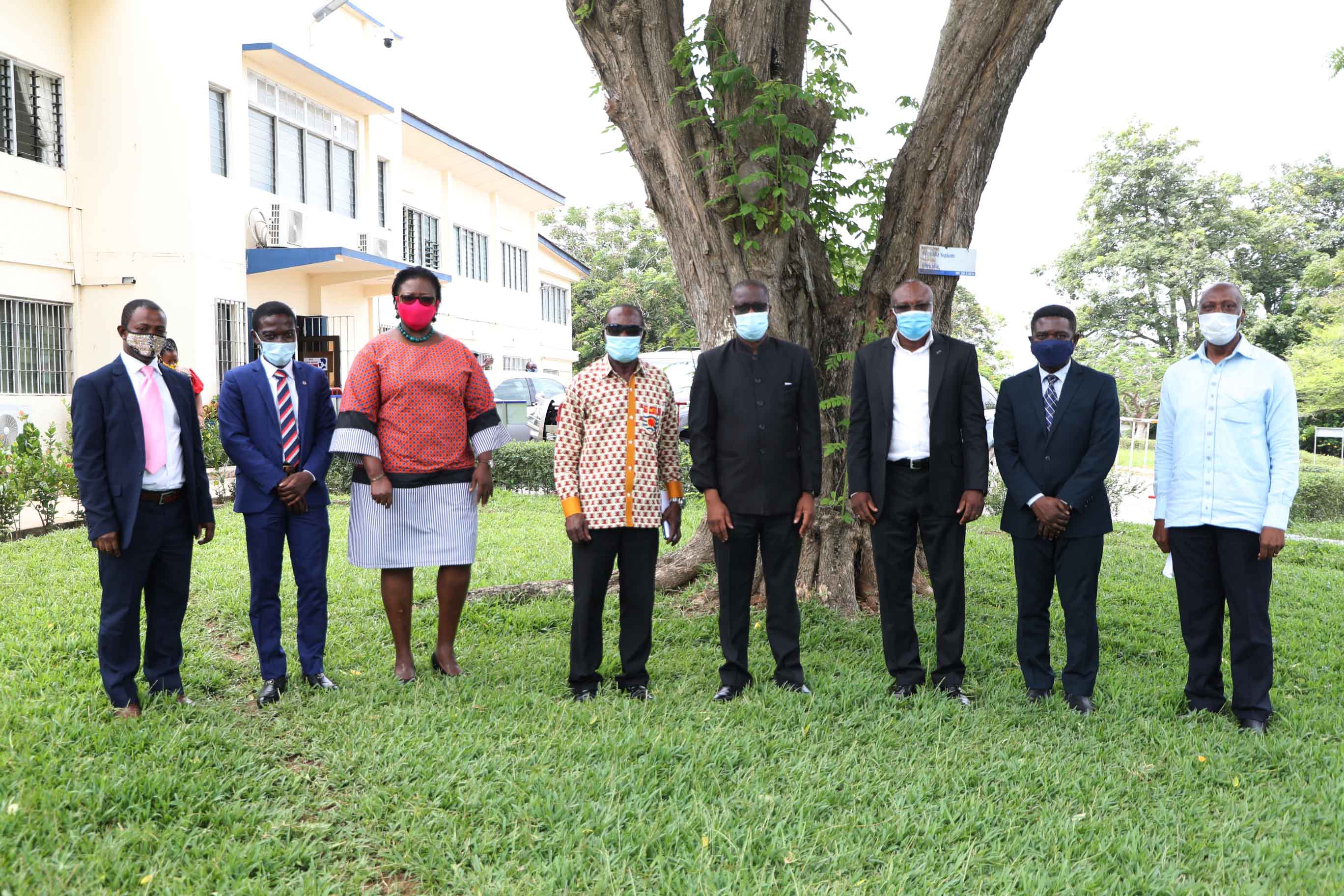The University has donated five sets of computers and accessories to the Central Regional Police Command.
The accessories were five sets of Uninterruptible Power Supplies (UPS) and a Coloured Printer.
Presentation
Presenting the items, the Vice-Chancellor, Prof. Joseph Ghartey Ampiah, noted that the donation was to support the Police to enhance their work. Prof. Ampiah said the items were being presented in response to a request made during a previous visit to the Central Regional Police Command.
Prof. Ampiah indicated that the University had enjoyed a cordial relationship with the Police over the years. “Our relationship has been a symbiotic experience. Whenever we need your support, you have always responded positively,” he stressed. He said the University would continue to work closely with the Central Regional Police Command in the interest of humanity.
Timely Donation
Responding, the Central Regional Police Commander, Commissioner of Police, Mr. Paul Manley Awini, who received the items, thanked the University for the donation. Mr. Awini noted that the work of the Police involved a lot of paper work. “We do a lot of investigations, prosecutions, and administrative work which involve paper work but the logistics we have are inadequate,” he noted. He added that “For security reasons, we cannot send documents outside to type and print, so this donation is timely”.
Present at the ceremony were the Pro Vice-Chancellor, Prof. Dora Edu-Buandoh; Registrar, Mr. John Kofi Nyan; Ag. Director of Legal, Consular and General Service (DLCGS), Mr. Alberta Yaa Graham; Ag. Director of Public Affairs, Major Kofi Baah-Bentum(rtd); Senior Assistant Registrar at the Office of the Vice-Chancellor, Dr. (Mrs.) Georgina Asi Owusu; Head of UCC Security, DCOP, Mr. Patrick Adusei Sarpong (rtd); and Assistant Registrar, DLCGS, Mr. Ignatius Peter Otsibu, and some senior officers of the Central Regional Police Command.






